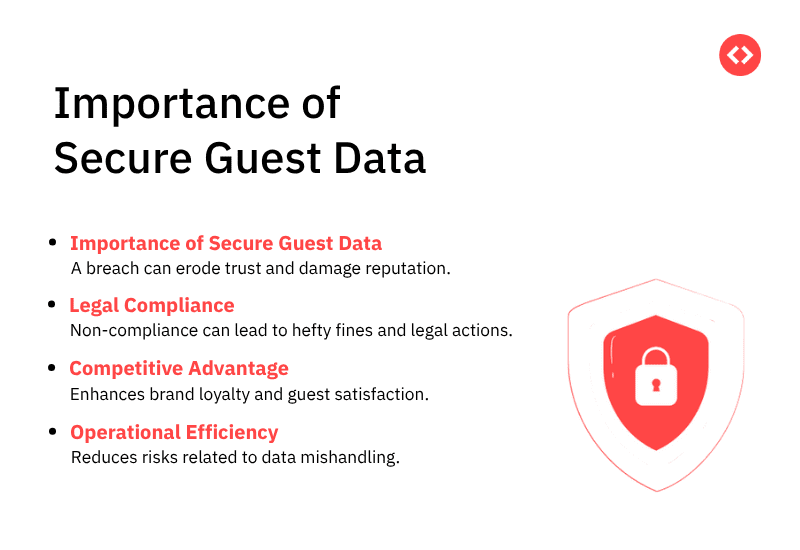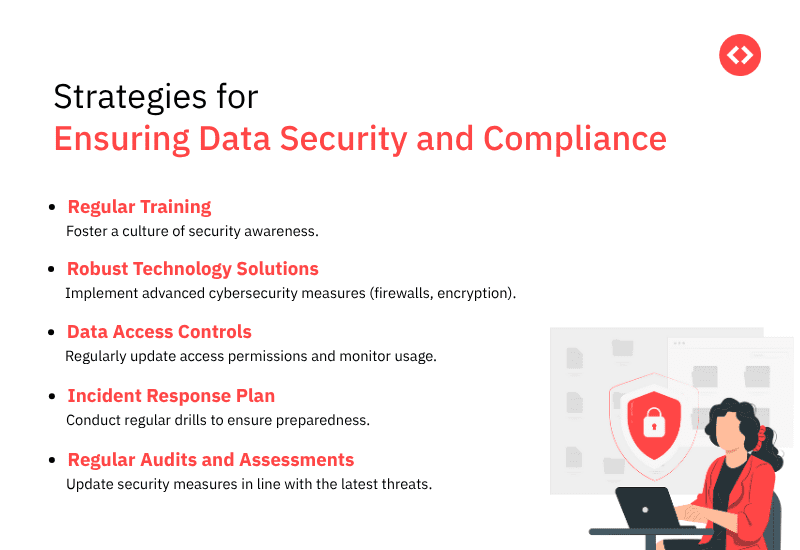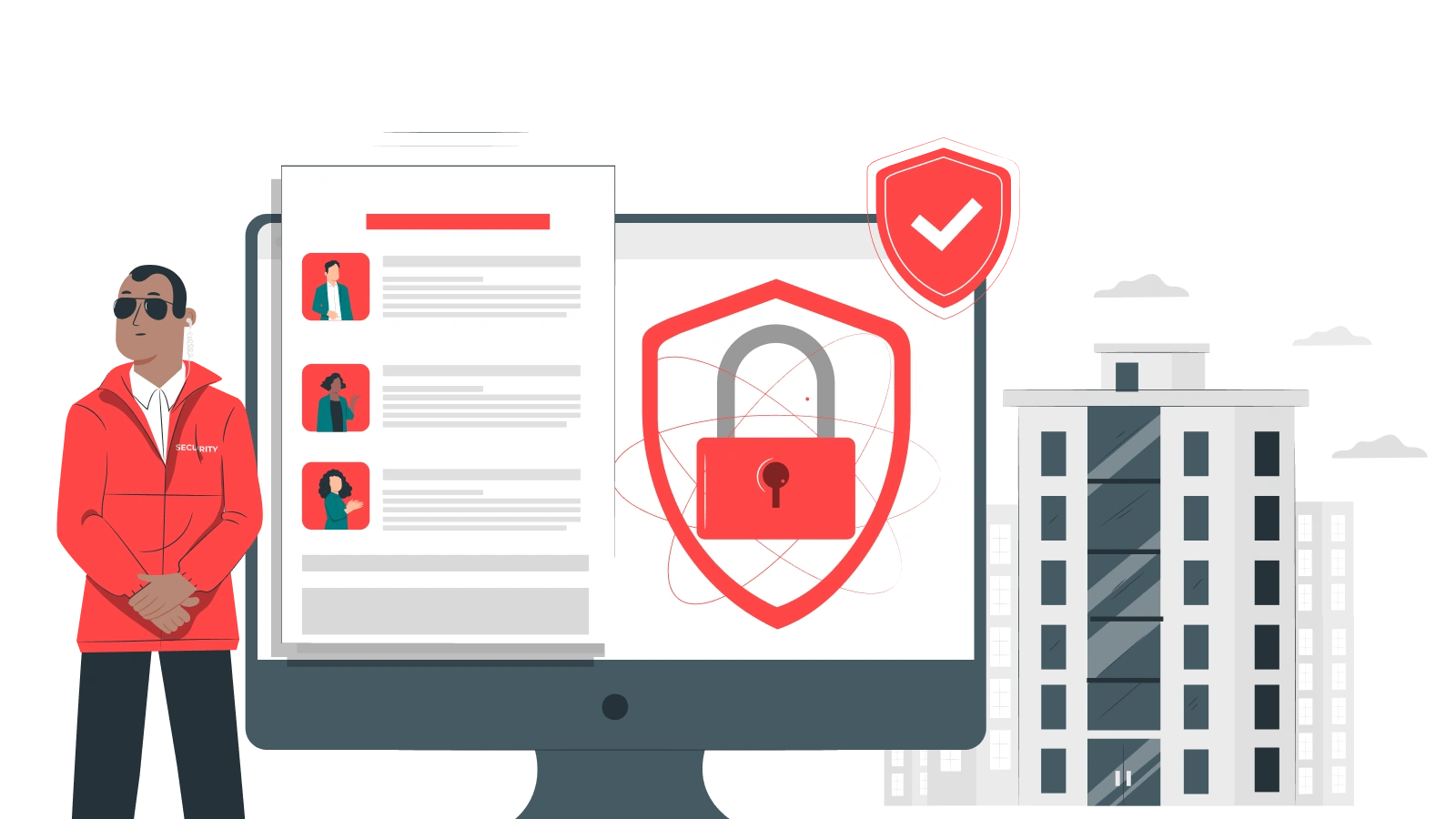Table of Contents
Updated : Oct 28, 2025
With cyber threats on the rise, ensuring hotel data compliance is no longer optional but an essential aspect of protecting sensitive information. According to IBM’s 2023 report, data breaches in the hospitality industry cost an average of $4.73 million—noticeably higher than the global cross-industry average —highlighting that insufficient data protection exposes hotels to greater-than-average financial risk. Moreover, guests increasingly prioritize the safety of their personal information when selecting an accommodation, making hotel cybersecurity a critical factor in maintaining a competitive edge. As hotel owners and managers, understanding the importance of robust guest data security practices not only safeguards your establishment’s reputation but also enhances customer loyalty and satisfaction.
The Significance of Guest Data Privacy

Hoteliers must understand that safeguarding guest data not only builds trust but also enhances the reputation of their establishment.
Data Security
Data security is the first line of defense in protecting guest information. It involves implementing robust technological measures to prevent unauthorized access and cyber threats. For hotels, this means investing in advanced hotel cybersecurity solutions that can detect and mitigate potential vulnerabilities. By prioritizing data security, hotel owners and managers can significantly reduce the risk of data breaches and ensure compliance with relevant regulations.
Data Compliance
Hotel data compliance refers to adhering to legal and industry standards that govern the collection, storage, and processing of guest data. Compliance is crucial as it helps hotels avoid legal penalties and financial losses while fostering a sense of trust among guests. By implementing strict policies and conducting regular audits, hotels can ensure they meet all requirements for data protection.
Data Protection
Data protection for hotels involves employing comprehensive strategies to safeguard personal information from unauthorized access or misuse. This includes encrypting sensitive data, regularly updating security protocols, and training staff on best practices for handling guest information. When hotels prioritize robust data protection measures, they not only enhance their security posture but also demonstrate their commitment to safeguarding their guests’ privacy.
Cybersecurity Threats Facing Hotels
As hotel owners and managers, being aware of the kind of threats your hotel might face can be the first step to protecting your hotel
Phishing Attacks
Phishing attacks remain one of the most prevalent cybersecurity threats facing hotels today. Cybercriminals often target hotel employees through deceptive emails, tricking them into revealing sensitive information or clicking on malicious links.
For instance, a hotel employee might receive an email that appears to be from a trusted vendor, asking them to update their login credentials. Once the employee complies, hackers gain access to critical systems, compromising both hotel operations and guest data protection for hotels.
Ransomware Attacks
Ransomware attacks pose a significant threat to the hospitality industry, where cybercriminals encrypt hotel systems and demand payment to restore access.
A prominent hotel chain fell victim to a ransomware attack, resulting in the temporary shutdown of its reservation system. This incident highlights the urgent need for robust hotel cybersecurity measures to prevent such disruptions and ensure compliance with data protection regulations.
Data Breaches
Data breaches are a significant concern for hotels, where guest information—such as credit card details and personal identification—is stored.
In one notable case, a breach at a luxury hotel chain exposed thousands of customers’ sensitive data, leading to financial loss and reputational damage. Implementing stringent hotel data compliance protocols can help mitigate these risks by ensuring that sensitive information is adequately protected.
Insider Threats
Insider threats occur when employees with access to sensitive data misuse it for personal gain or inadvertently expose it due to negligence.
For example, an employee might download guest data onto an unsecured device, leaving it vulnerable to theft or unauthorized access. Establishing a culture of awareness and training staff on data protection for hotels can significantly reduce the risk of insider threats.
Third-Party Vulnerabilities
Hotels often rely on third-party vendors for various services, which can introduce vulnerabilities into their systems if those vendors have weak security measures.
A breach at a third-party vendor can cascade into the hotel’s network, as seen in cases where payment processing companies were compromised. Ensuring hotel data compliance by carefully vetting vendors and establishing secure integration points is crucial for preventing such vulnerabilities.
Transform your hospitality approach today
Discover actionable strategies tailored for small hotel owners and managers creating unforgettable stays for your guests & expanding revenues for your hotel!
Start your 30-day FREE trial now!Best Practices for Protecting Guest Data

Implement Strong Access Controls
To ensure robust data protection for hotels, it is crucial to implement strong access controls. This involves setting up user authentication protocols that limit access to sensitive guest information.
How-To Do It?
1. Define User Roles: Assign specific roles to employees based on their job requirements, ensuring only authorized personnel have access to guest data.
2. Use Multi-Factor Authentication (MFA): Incorporate MFA into your security protocols to add an extra layer of protection.
3. Regularly Update Passwords: Implement a policy that requires employees to update their passwords regularly and use complex combinations.
Encrypt Sensitive Data
Encryption is a key component of hotel data compliance and hotel cybersecurity. By encrypting sensitive guest data, you protect it from unauthorized access, even if the data is intercepted during transmission.
How-To Do It?
1. Use SSL Certificates: Ensure your hotel’s website uses SSL certificates to encrypt data exchanged between your site and your guests.
2. Encrypt Stored Data: Employ encryption tools to secure databases and files containing guest information.
3. Keep Encryption Keys Secure: Store encryption keys separately from the encrypted data and restrict access to them.
Conduct Regular Security Audits
Regular security audits are vital for maintaining hotel data compliance and ensuring ongoing protection of guest information.
How-To Do It?
1. Schedule Routine Audits: Plan regular audits as part of your hotel cybersecurity strategy to identify vulnerabilities.
2. Engage Third-Party Experts: Consider hiring external cybersecurity experts for an unbiased assessment of your systems.
3. Act on Findings Promptly: Address any issues discovered during audits immediately to mitigate potential risks.
Train Staff on Data Protection Protocols
Employees play a critical role in maintaining data security, making staff training essential in protecting guest information.
How-To Do It?
1. Develop a Training Program: Create comprehensive training sessions focused on hotel data compliance, privacy laws, and cybersecurity best practices.
2. Conduct Regular Workshops: Organize periodic workshops to keep staff updated on the latest threats and security measures.
3. Evaluate Training Effectiveness: Use assessments to gauge the effectiveness of training programs and make improvements as needed.
Monitor Systems Continuously
Continuous monitoring is essential for detecting and responding to potential threats in real-time, thereby enhancing data protection for hotels.
How-To Do It?
1. Set Up Intrusion Detection Systems (IDS): Implement IDS solutions to monitor network traffic and identify suspicious activities.
2. Use Security Information and Event Management (SIEM) Tools: Deploy SIEM tools for comprehensive analysis of security alerts generated by applications and network hardware.
3. Respond Swiftly to Alerts: Establish a protocol for quick response to any detected anomalies or breaches, minimizing potential impacts on guest data security.
Leveraging Hotel Technology for Data Security
Technology comes with advanced systems and privacy controls that let you easily secure valuable guest data.
Implementing Advanced PMS Solutions
Property Management Systems (PMS) like Opera and RoomRaccoon are at the forefront of hotel data compliance. These systems streamline operations while ensuring data protection for hotels by encrypting guest information and storing it securely.
Opera, for instance, offers robust encryption protocols and multi-level access controls, reducing the risk of unauthorized data breaches. RoomRaccoon integrates seamlessly with other hotel software, ensuring all guest data is centralized and protected within a secure environment.
Utilizing Cloud-Based Security Platforms
Cloud-based security platforms such as Cloudbeds and Mews enhance hotel cybersecurity by offering scalable security measures that adapt to the unique needs of each hotel.
Cloudbeds employs end-to-end encryption and secure servers to protect sensitive guest data from cyber threats.
Mews provides real-time monitoring and automatic updates to prevent vulnerabilities, ensuring that hotel data compliance standards are consistently met without disrupting daily operations.
Adopting Secure Payment Gateways
Secure payment gateways like Stripe and PayPal are essential for safeguarding financial transactions in hotels.
Stripe offers advanced fraud detection tools and encryption technology to protect guest payment information, aligning with stringent data protection for hotels.
PayPal ensures quick, secure transactions while maintaining a high level of hotel cybersecurity with its comprehensive buyer protection policies and encrypted gateways, providing peace of mind for both guests and hotel management.
Implementing Network Security Solutions
Network security solutions such as Cisco Umbrella and Fortinet are critical in defending against cyber threats targeting hotel networks.
Cisco Umbrella offers DNS-layer security that blocks malicious domains before they reach the network, ensuring a robust line of defense for sensitive guest information.
Fortinet provides comprehensive firewall solutions that safeguard against unauthorized access, enhancing overall hotel cybersecurity efforts.
Wrapping Up
Ensuring robust hotel data compliance and implementing stringent measures for data protection for hotels not only safeguards guest information but also builds trust and loyalty among patrons. As technology continues to evolve, so too must our strategies. Hotel cybersecurity should be at the forefront of every manager’s agenda, with continued investment in advanced security technologies and regular staff training. By adopting a proactive approach to data security, hotel owners and managers can protect their hotels from potential threats while ensuring a seamless experience for their guests, ultimately securing their reputation and success in the competitive hospitality industry.
Addressing Common Concerns on Data Security in the Hotel Industry
1. What steps should hotel managers take to ensure data protection for hotels?
To safeguard guest information, hotel managers should prioritize implementing robust data security measures. First, conduct a thorough assessment of your current hotel data compliance practices. This involves identifying potential vulnerabilities in your systems and ensuring that all operations align with industry standards and regulations. Next, invest in advanced cybersecurity solutions tailored for the hospitality sector. These might include firewalls, intrusion detection systems, and encryption technologies specifically designed to protect sensitive guest data. Additionally, regular staff training on the importance of data security and the latest cybersecurity threats can help prevent breaches caused by human error.
2. How does hotel cybersecurity influence guest trust and business reputation?
Hotel cybersecurity directly impacts guest trust, as travelers are increasingly aware of the risks associated with data breaches. When guests provide their personal information, they expect it to be handled with the utmost care and protected against unauthorized access. By demonstrating strong data protection for hotels, you reassure guests that their information is safe with you, thereby fostering trust and encouraging repeat business. Moreover, maintaining rigorous hotel data compliance not only helps avoid legal penalties but also enhances your establishment’s reputation as a reliable and secure choice for accommodation. In today’s competitive market, prioritizing data security is not just a regulatory necessity; it’s a strategic advantage that can set your hotel apart from others.







